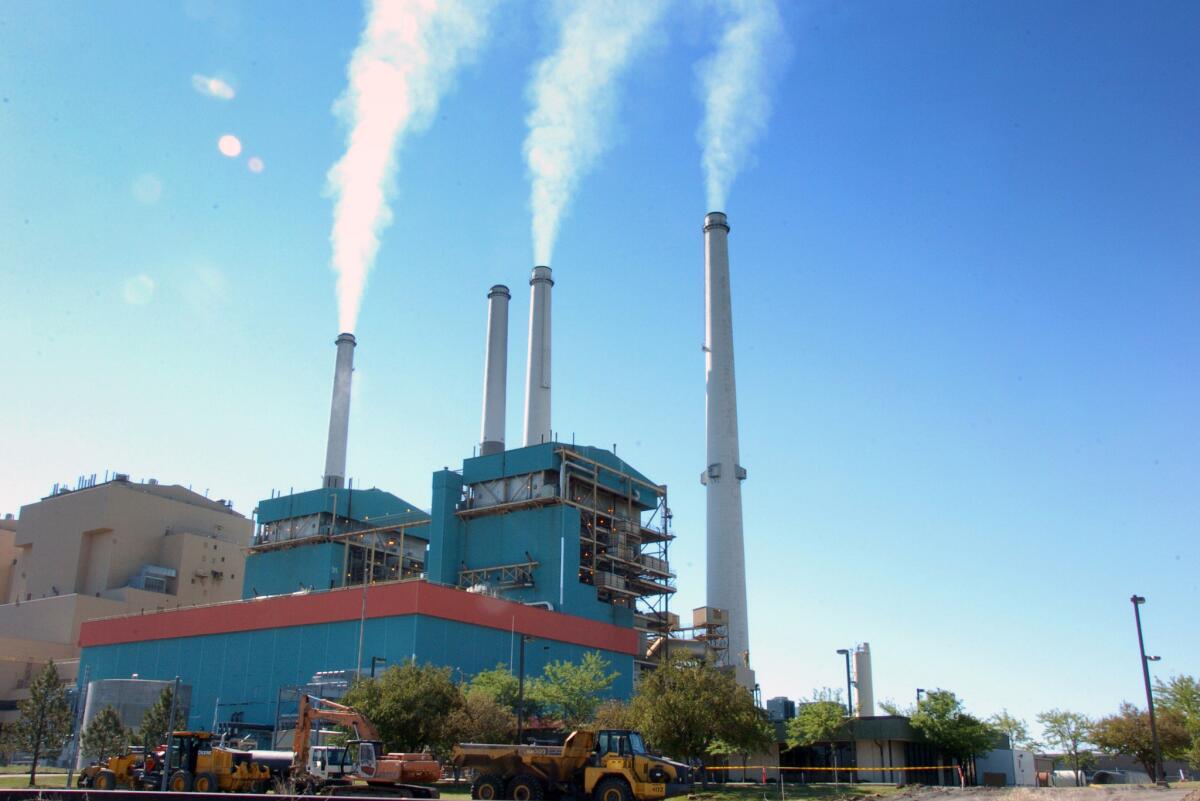Supreme Court upholds EPA rule to reduce cross-state pollution

- Share via
Reporting from WASHINGTON — The Supreme Court by a lopsided vote upheld an Obama administration regulation that requires states with coal-fired power plants to reduce the air pollution that drifts across Midwest and East Coast states.
“This is a big win for the nation’s public health and a proud day for the agency,” said Gina McCarthy, administrator of the Environmental Protection Agency.
The cross-state air pollution rule covers 28 states in the eastern half of the nation. When it was announced in 2011, EPA estimated that downwind pollution from these coal-fired plants triggered more than 400,000 asthma attacks a year and caused 34,000 premature deaths in neighboring states.
“Millions of Americans will breathe easier, thanks to the decision today,” said the American Lung Assn. in a statement.
The cross-state rule was designed to deal with a complex regulatory challenge. The Clean Air Act calls for states and the EPA to work together in setting policies to reduce pollution, but some downwind states have bad air because it drifts across their borders from their neighbors to the west.
The EPA’s rule required the upwind states that produced the pollution to do more. But Texas and several Midwestern states, joining with the electric power industry, sued to block the rule. They won a 2-1 ruling from the U.S. Court of Appeals for the District of Columbia, which said the EPA had gone too far in its regulation.
But the Supreme Court disagreed and revived the rule Tuesday in an opinion written by Justice Ruth Bader Ginsburg and joined by Chief Justice John G. Roberts Jr. and Justices Anthony M. Kennedy, Stephen G. Breyer, Sonia Sotomayor and Elena Kagan.
Ginsburg said the EPA’s regulation was a reasonable means of enforcing the Clean Air Act. Justices Antonin Scalia and Clarence Thomas dissented, while Justice Samuel A. Alito Jr. took no part.
More to Read
Sign up for Essential California
The most important California stories and recommendations in your inbox every morning.
You may occasionally receive promotional content from the Los Angeles Times.














